Weekly Update - May 10, 2024

Introduction
This article is very long! Thanks for reading. The more useful updates are at the top.....The longer you go down, the more vague it becomes.

Draft I progress - TNOM
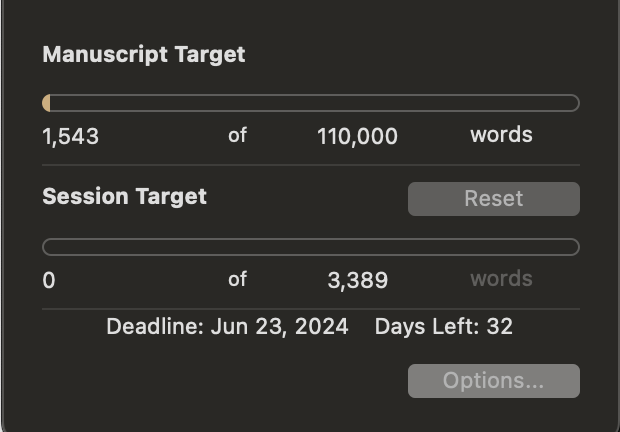
No progress on the manuscript. Did more research on science, and trying to accelerate world building.
Plot needs a lot of work....There are no plot holes at all, because the plot is unfinished.

Needa
The rules for the prototype are finalized. The board is a 5 x 5 grid, that was easy. I used Inkscape.

Needa was based on the concept of using black and white for double agents.....When an agent is a double agent, you never know whose side they are on...one side black, and one side white.

So if a tile is black on one side, and white on the other, you won't know which side the agent supports when it's on the field...the tile shows 1 direction to the world, but it could be something else underneath.

The game design was very bad.
The idea I liked so much just didn't work, no matter how many times I thought about it, redid the game, or fixed obvious issues.
After I redesigned the entire game from the ground up, I removed this central concept of a tile being black and white, black and black, or white and white. Now all tiles are just grey on one side.
I realized that I wasn't actually adding any value to the game with this idea....A very sad day when a cool idea is abandoned....
I think the problem with this idea, was that the idea itself was perfect.
To make a player feel like they are actually in a game of espionage, the idea that an agent can be a double agent, needs to be felt, not declared in the rules.
As it is, it's difficult for abstract games to attract attention, because the very simplicity of the rules makes it difficult to enjoy on a thematic level.
In other words, this:
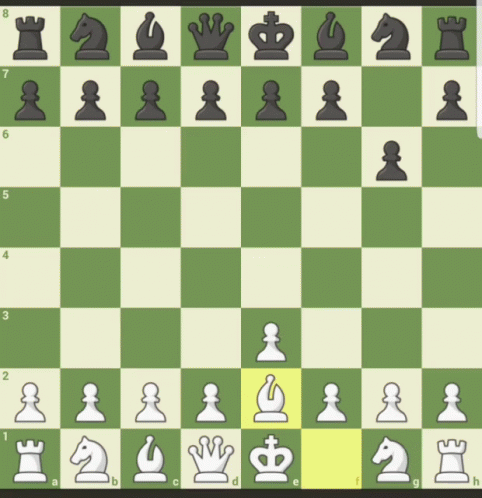
And this, are 2 different things:
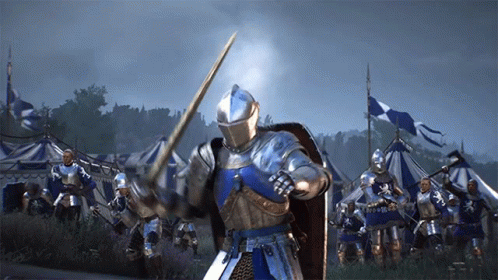
In particular, making a game on espionage tactics is something I've found very hard to do.
Chess is a game of 'perfect information' - given enough time, I can find the right solution to a problem....The tournament clock reduces that time available, focusing on player skill.
In espionage, however, there is no perfect information. Anything and everything is suspect.
So essentially, how do I include suspense and intrigue in a game, contextually? That too, in an abstract game?
The mechanic I introduced to solve this issue, among others, was that both players control all pieces.
I liked this idea a lot - it sounded very interesting. And it actually works, both on a thematic and mechanical level.
On a thematic level, it's perfect - spy masters trade in intel. An agent that is useful to you, is more useful to you if I think it's useful to me. Or you.
But I can think the same thing too.....In a game of information, information itself is a currency.
The goal isn't to checkmate the king - it's to allow the king to live like before, without him realizing that his queen now works for you.
So in order to make an abstract game a spy game, I needed to combine all the information, make it open, and give room for players to separate information faster than their opponent.
Or combine it again 😉
More resources, insights & ideas
Found a nice article on world building while studying. I included it in the resources page.
This section from that article, by Hannah Yang, is something I've touched on with a different name in another article.
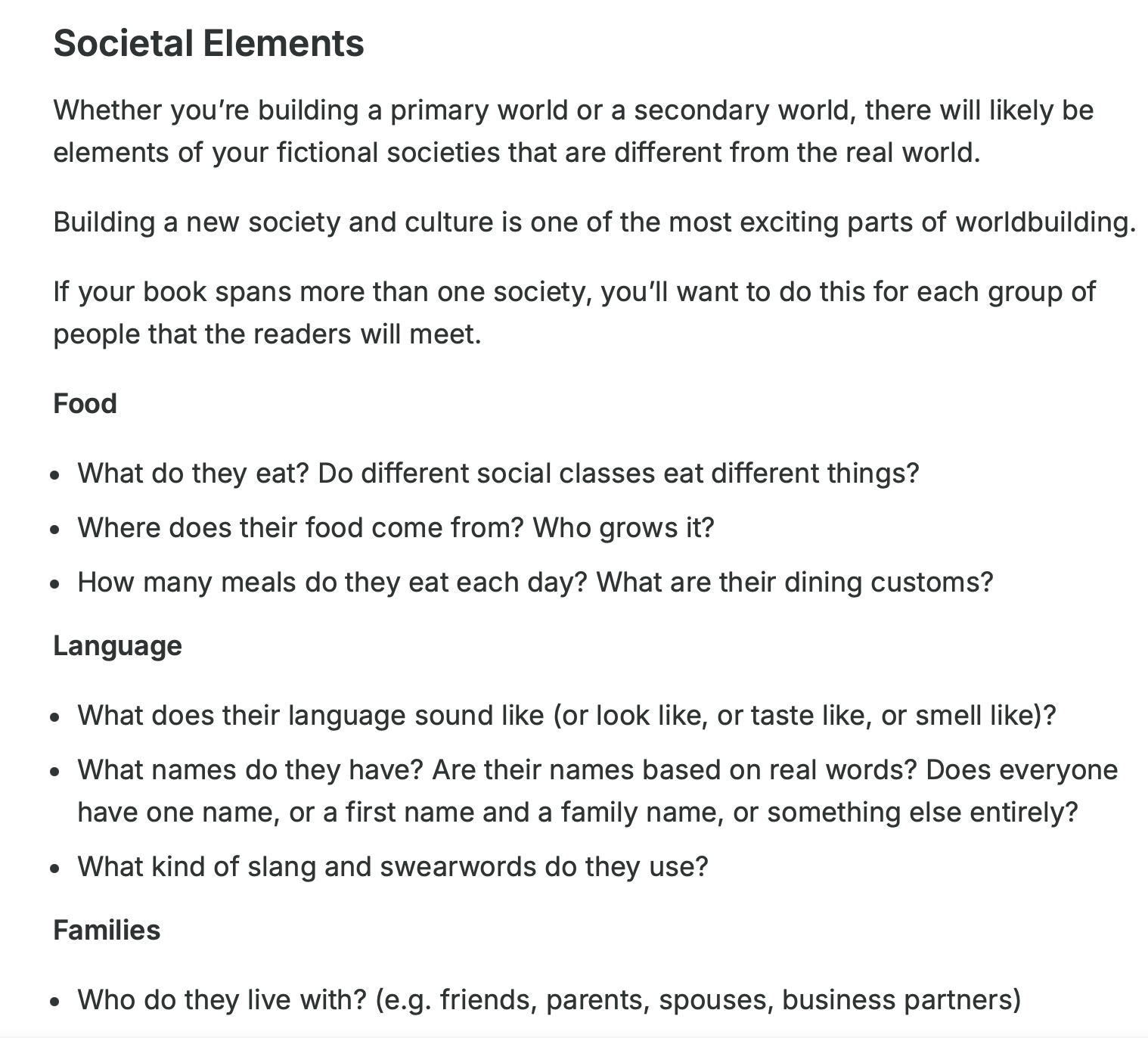

If I am right to see this common thread between approaches, then I think both students and writers will benefit from having a shared understanding of 'what' is world building, 'why' it matters, and 'what' is "good" world building.
Another article I found, explained a mistake I made a long time ago, very well!
This took me a while to realize, and I want to include her article for the sake of the reader.

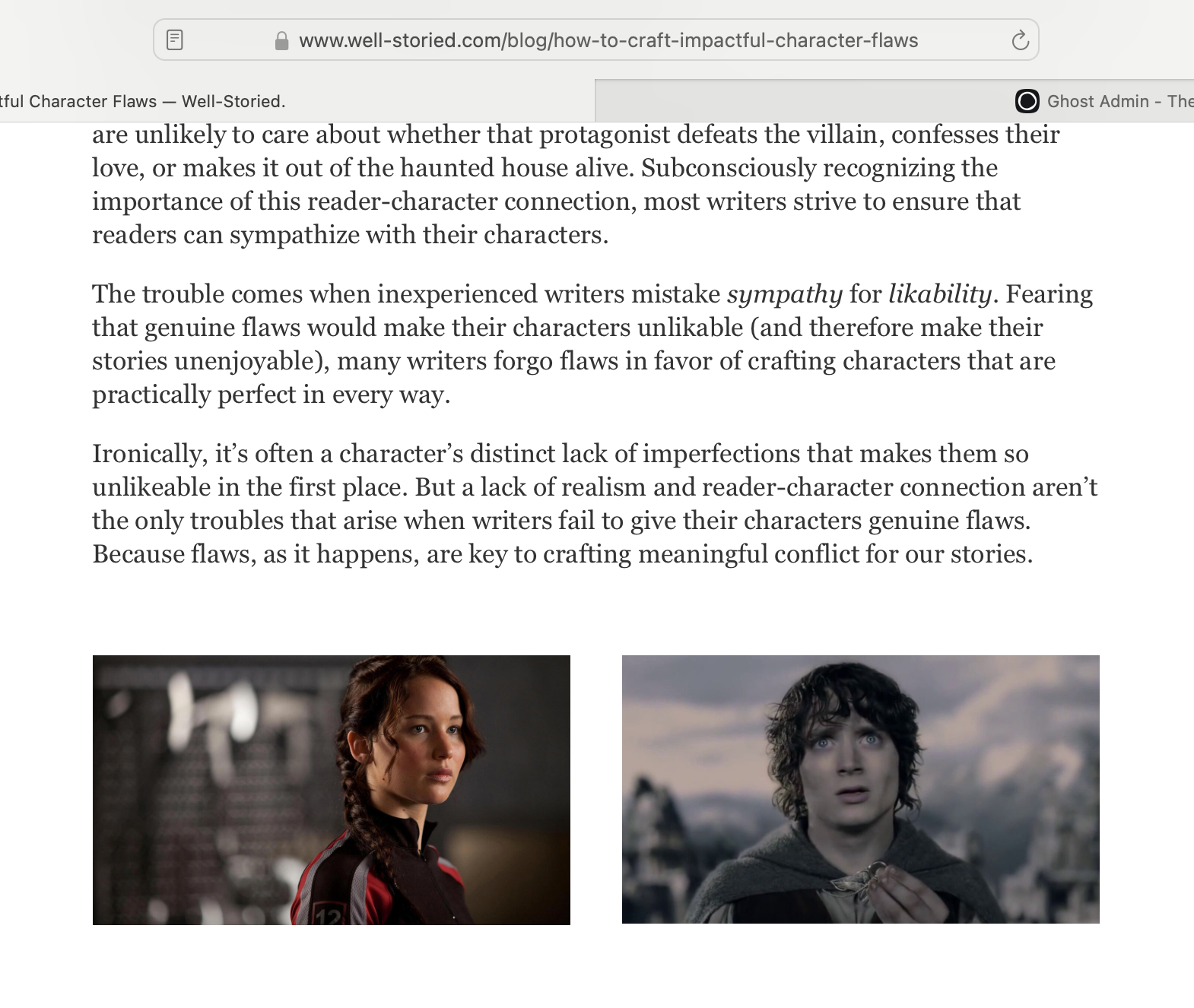
A common mistake I made for a while is to make my characters great.
Sometimes, it hurts to make them suffer, but that's sort of the point.
Readers want the characters to suffer. Often, suffering that is triumphed leads to more joy for everyone.
I also think there's some projected wishful thinking, on behalf of the viewer - I am thankful I don't suffer like Frodo.
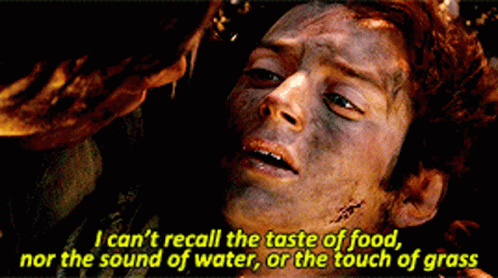
It hurts even more to make a nice, well rounded, likable character a jerk, or someone who consistently likes hurting people.
When I avoid that approach, because it makes the character look bad, what I am really saying is:
- I want my character to be happy all the time, and still struggle.
- That people don't have bad days
Which neither makes sense, nor improves the story.
Side note: In my opinion, Jon Franklin, in his book Writing For Story went pretty deep on this topic in his book. I included 2 pages of his book at the end of this article, under the Fair Use Act.
It's not the direction I went through, but it's worth reading.
If you feel what I wrote made sense, you think you know what you're doing, and you want to study the craft itself, then his book will be a good source for you!
I have been wanting to use modeling to get good insight into how a world works.
Thought this link was useful: https://allendowney.github.io/ModSimPy/
Resources
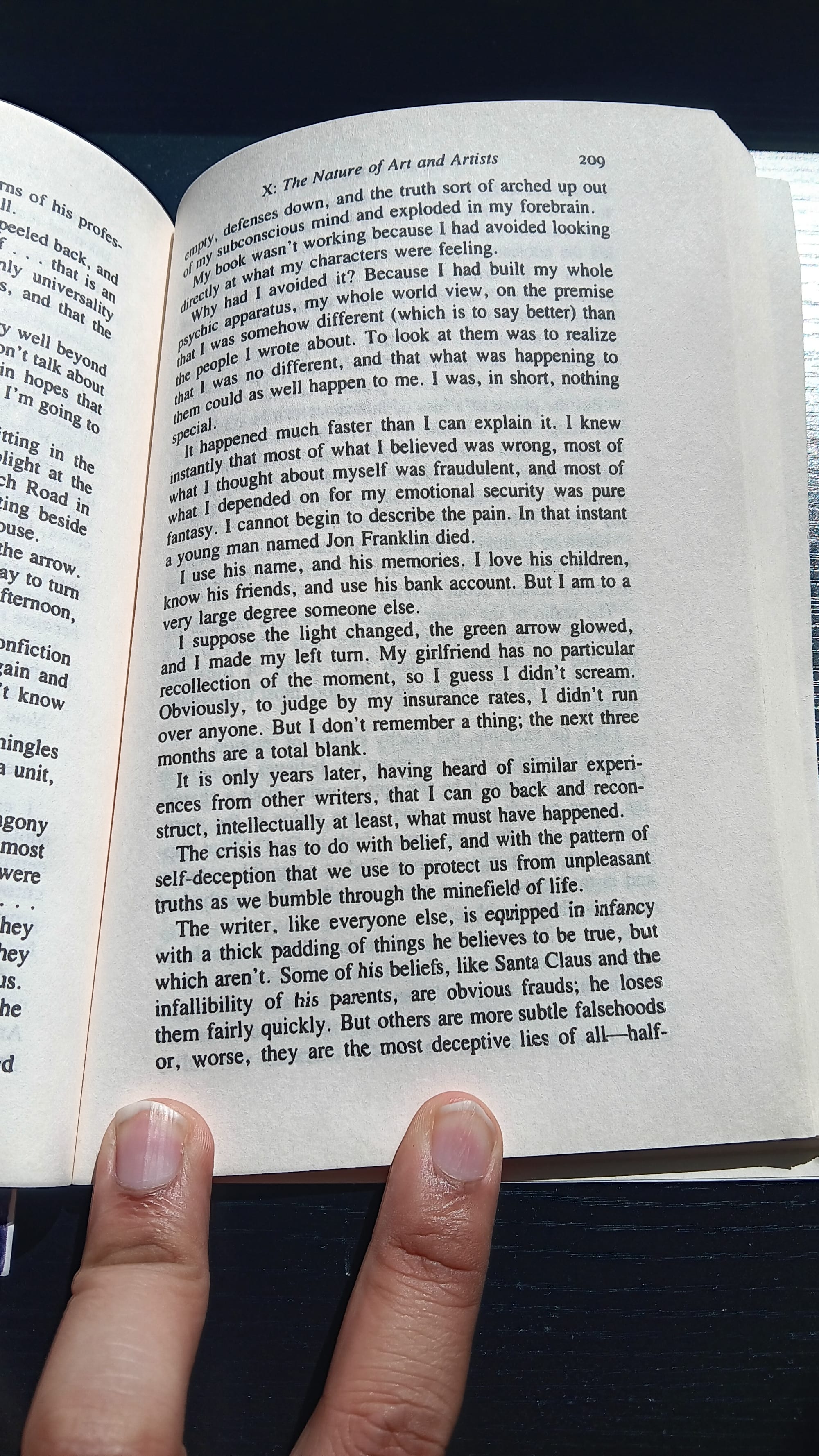
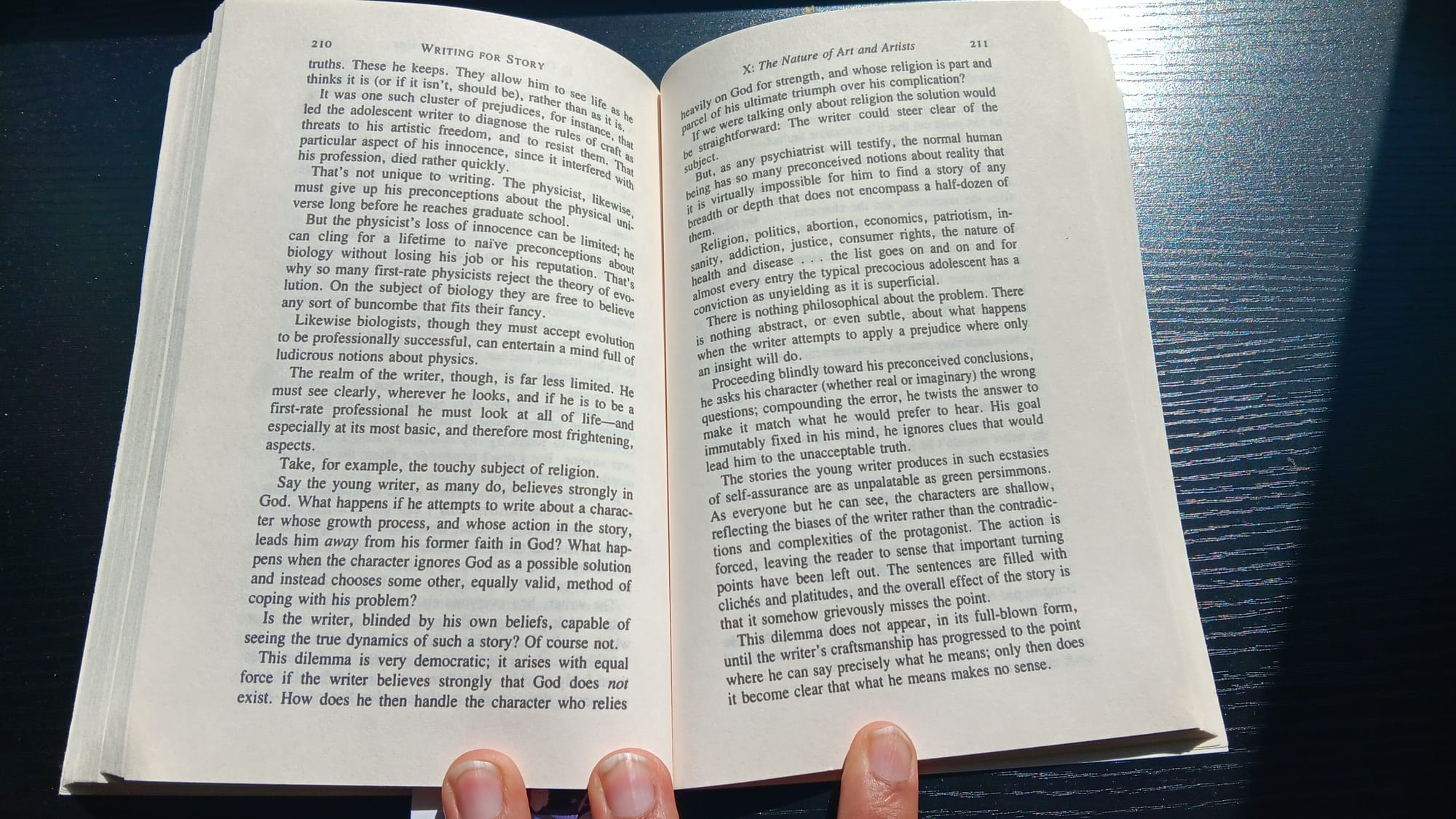

Member discussion